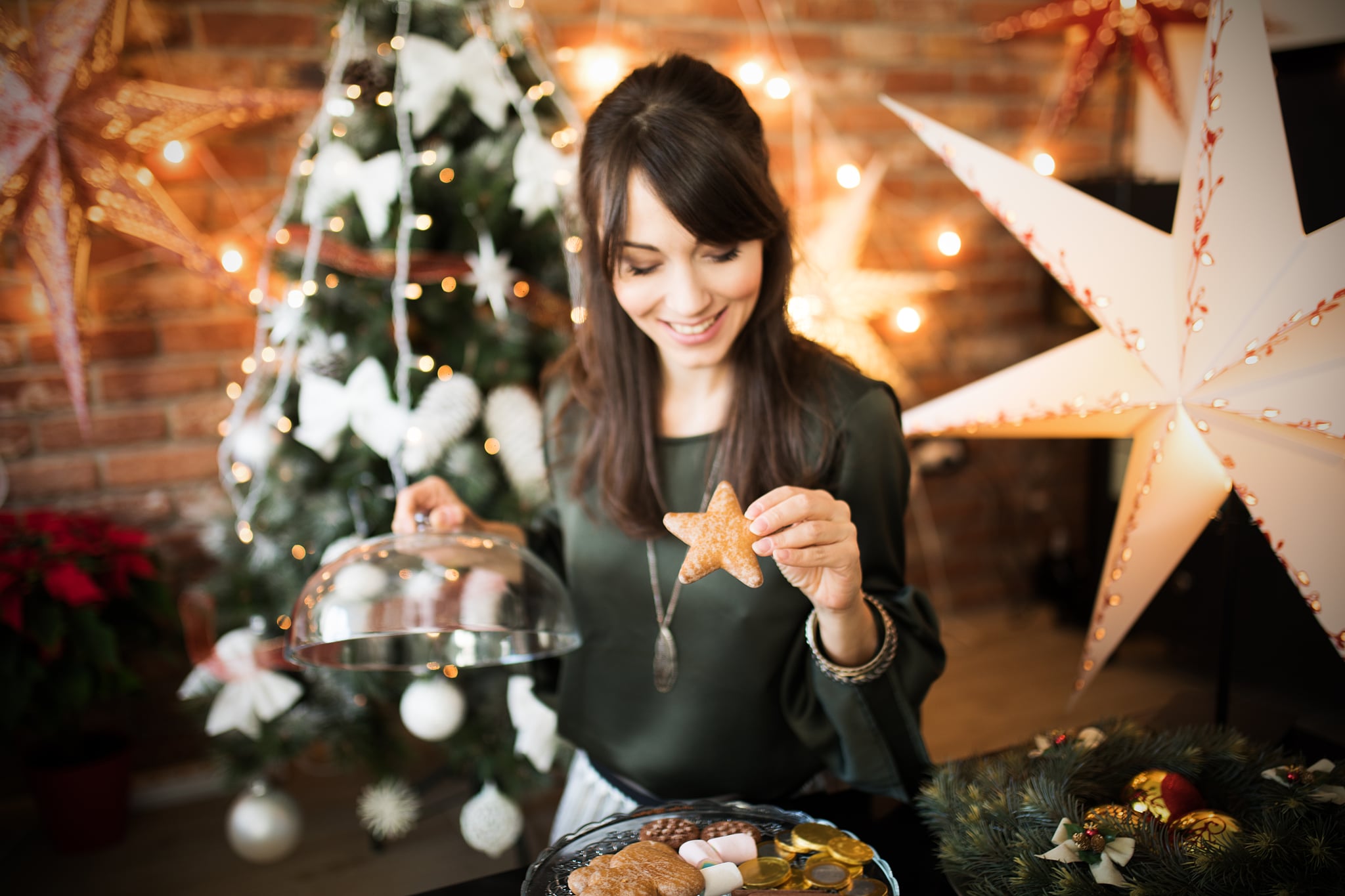
Cookies, pies, candy canes, chocolate: it’s hard to imagine the holiday season without desserts, and personally, I wouldn’t want to. My aunts send out tins of cookies, my sister makes these white chocolate pumpkin truffles, and my mom bakes deliciously sugary blueberry muffins on Christmas morning. I’m basically sitting at the kitchen table eating pastries and desserts for a week, and I fully embrace it.
Still, even with everything I read and write about intuitive eating and having a healthy relationship with food, I can’t help but feel guilty when I’m systematically sampling the wide array of holiday treats in my kitchen. My sweet tooth is having the time of its life, but in the back of my mind, there’s a voice saying, “These cookies are bad. Shouldn’t I eat something that’s good?”
Why We Feel Food Guilt During the Holidays
A lot of us hear that voice, said Lauren Cadillac, a registered dietitian and certified personal trainer in New York City. And judging food as “good” or “bad” might steer us away from less-than-healthy treats but at the cost of a positive relationship with food.
“When we make foods bad and then we let ourselves eat them,” Lauren explained, “We feel bad, like we did something wrong. We feel guilty. . . and that leads to shame.” Then comes a vicious cycle that can lead to overeating, Lauren said. “It can turn into, ‘well, screw it, I already messed up. I was already bad, so I might as well just keep eating.'”
Plus, calling a food “bad” just increases your temptation for it. “When things are made off-limits, you want them even more,” Lauren told POPSUGAR. And around the holidays, you’re often surrounded by treats that are particular to this time of year, treats that you don’t have in your kitchen year-round. “We don’t have a chance to ‘get used to them,’ if you will,” Lauren explained. You’re not exposed to these kinds of treats all the time, which makes them all the more enticing and, when you “give in” and eat them, it only heightens the desire to eat more than you really want.
Dropping the “Morality” of Food
The holiday season “can be a challenging time to start to address your relationship with food,” Lauren said, so it’s important to be patient with yourself. One thing you can work on is putting everything on the same playing field. “Obviously certain foods have more nutritional value than other foods, but morality-wise, all foods are equivalent,” Lauren explained.
Instead, choose foods based on what you enjoy and what feels good in your body, Lauren said. Granted, that’s easier said then done. A lot of us have spent years internalizing that good food/bad food mentality, and breaking out of it is a process and a journey. One place to start is by being as mindful as possible when you’re deciding what to eat and when you’re eating it.
It’s fine to question why you’re eating a certain food, whether it’s a cookie or a salad, but make sure you’re thinking in terms of “how am I going to feel after eating this?” Lauren said, not “Is it worth it? Am I going to have to run three miles later to burn it off?” Don’t feel like you need to compensate for what you eat. And even if you know those few cookies might upset your stomach later, you might still choose to eat it for a number of reasons: maybe it’s a special treat for this time of year, maybe you just really want the damn cookies. That’s fine! “There’s no reason to beat yourself up over it,” Lauren said.
And when you are sitting down to a holiday treat, take your time, and eat it as mindfully as possible. Enjoy it with all your senses, Lauren said. “Does it have a scent to it? How does it feel? How does it look? What shape is it? Take a bite of it, and notice how it feels on your tongue,” she elaborated. If you’re eating distracted, you might end up physically full but still mentally hungry, craving that full experience of eating. That’s the feeling that can lead you to overeat to the point of discomfort.
Fuel Up on Healthy Food, Too
Another mistake you might be making? Skipping meals earlier in the day to “save calories” for later on. It doesn’t quite work that way, Lauren said, and that strategy can actually backfire on you. By the time dinner rolls around, you’ll be famished and less capable of making thoughtful decisions about food, let alone eating it mindfully.
Instead, focus on eating a well-rounded diet throughout the day. That means eating all your macronutrients: nourishing proteins, fats, and especially carbs, Lauren said. Big holiday meals often involve carb-rich foods that are all too easy to overeat when you’ve been restricting carbs throughout the day. When you get to your big meal (and dessert) of the day, you want to be feeling hungry but not ravenous, so you can make mindful decisions about what you really want to eat.
And as much as possible, Lauren said, try not to stress so much about what you’re eating over the holidays. Sweet treats and rich meals are everywhere, and it’s normal and natural for your weight to fluctuate a little bit; there’s no reason to panic about that. The holidays can be stressful, but they’re also all about family, friends, and joy. “Keep in mind what is really important during this time of year,” Lauren said. Food is just one small part of the holiday season; see it not as a test of your willpower but another chance to mindfully enjoy the festive season to the fullest.
Image Source: Getty / M_a_y_a
